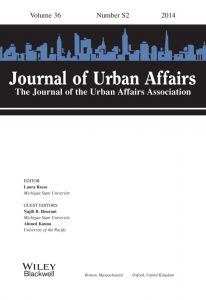Teaching Month – Five tips on leading undergrad seminars

https://upload.wikimedia.org/wikipedia/commons/1/12/Craie1.jpg
I’m no teaching expert, but I am fortunate that I’ve had plenty of practice in it. Thanks to a sympathetic professor at my old University I was given the chance to do some seminar teaching when I was just 23, and I ended up doing it for five years, during which time I also completed my Masters. I then went to Korea and taught ESL for two years. Now I’m doing my PhD and I lead some sociology seminars. So somehow I’ve accumulated over seven years (!) of experience in a variety of environments, and I’ve attended plenty of teaching workshops and completed a month-long CELTA course in ESL teaching. Teaching is a challenge but I find it very rewarding and character-building. It’s also a good way to brush up on new (and old) topics – “the best way to learn is to teach” is a cliché, but there’s a lot of truth in it.
Teaching can be quite nerve-wracking so here are a few pointers which might come in handy, especially for seminars when the aim is to stimulate discussion, debate and understanding.
1. Build a rapport
The first time you enter a classroom with twenty-odd freshers can be daunting. They are new to each other, and new to you. They can often be young, shy and unsure of what is expected of them. Breaking the ice is really important if you want them to open up and TALK! It may sound a bit childish, but I find that a couple of quick ice-breaker tasks can be well worth the time spent in the long run. I have a couple of tricks up my sleeve which I picked up from my ESL days. The first is to get students to talk to their partner and get some information from them like their name, hometown, their reason for choosing this course, and ‘one thing they are worried/excited about’. You can then ask a few students to report back to the class on what they’ve learnt. The busyteacher website has a load of other ice-breaker exercises.
Using student’s names is also really important for building rapport. Again, it might sound childish, but getting the students to make a name-sign and place it in front of them can be a great way to help you remember and use their names. People respond a lot better when you use their names (I know I do!), and name signs are much easier to look at, instead of glancing away at your register.
2. Expect little or no reading
Perhaps the biggest problem with teaching undergrads is that they don’t do the required reading. If you’re a postgrad student it can be assumed that you have a passion and enthusiasm for your subject, and it can be disheartening to see students who just don’t seem to care very much. But remember that you were once in their shoes, and classes were only one aspect of life as an undergrad – when you are an eighteen-year old, things like girls/boys, nightlife, and the thrill of living away from ones parents often take precedence over reading dusty or difficult academic readings!
There are two ways to deal with this: one – get angry and chastise the students that they aren’t taking the course seriously; or two – remind them that reading is important for getting good grades, but try and lead the seminar as well as you can. There is often (though not always) scope for tweaking the discussion questions so that students can discuss a topic with reference to their own experiences, rather than to a particular author or scholar. You can also put students into small groups so that the more eager students who have done the reading can help those who haven’t. The lazier students might thus also be shamed into reading more in future. Might.
3. ‘Translate’ academic language
Usually I have lead seminars in modules which I have not written myself. Someone more senior (the module convenor or co-ordinator) has prepared the materials and my role is to just deliver the seminars. This can be frustrating when the reading material and/or discussion questions are difficult and the students are intimidated by them. If this happens I try and re-phrase certain questions to make them more digestible. For example, the ‘scary’ question “What consequences did the shift from fordism to post-fordism have on class relations and class identities?” might be replaced by smaller, easier questions which I’ll project or write on the board: “What do you think Fordism means?”, “How is it different from what we have today?”, “if people do different kinds of jobs then what kind of class might they identify as?”
4. Build confidence
Putting one student on the spot is a guaranteed way to get a tumble-weed moment. I usually give students time to discuss questions in small groups for a few minutes before I ask for their responses in front of the whole class, in my slower version of the well-known ‘Pause, Pose, Pounce’ teaching strategy. During this time I’ll go around the class and make sure the students aren’t just checking their phones, and clear up any misunderstandings.
To help facilitate this, make sure chairs and desks are in a seminar setting of small clusters so students aren’t just sat in rows staring at you at the front. A seminar is NOT supposed to be like a lecture, and you can make a huge difference to the atmosphere of a class by the way you set up the environment. If students sit down in small groups facing one another, they can mentally prepare themselves for more discursive, less passive learning activities.
5. Believe in yourself!
Teaching for the first time is scary. Even teachers with years of experience tell me that they get nerves before a new term starts, because they fear that they might have got rusty over summer vacation, or they might just have forgotten everything! But remember that students will respect you and will trust in what you say far more than you realise. If you have graduated from a BA and an MA in a particular topic, then you can surprise yourself with just how much knowledge you have picked up along the way. You can be a source of knowledge and of inspiration to younger students, and as you are often younger then the Big Bad Professors, you might be more approachable for them.
Being a PhD student, it’s easy to compare oneself to one’s peers or superiors, who are often highly intelligent, accomplished and capable scholars. This can be daunting. Teaching undergrads can remind you of just how far you’ve come, and can give you a health sense of perspective on what you’ve learnt and accomplished on your academic journey already, and how much more you can achieve in the future.





